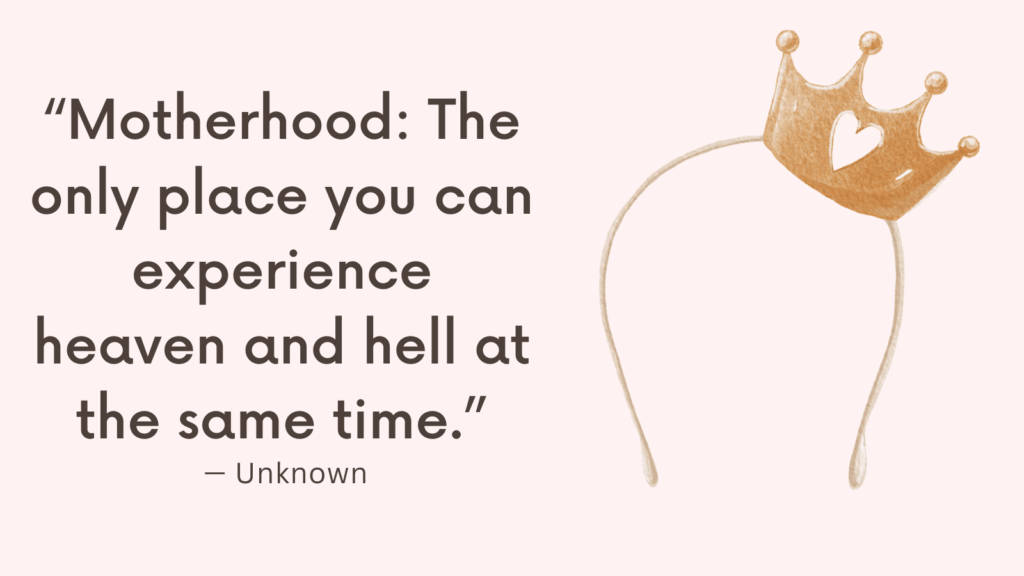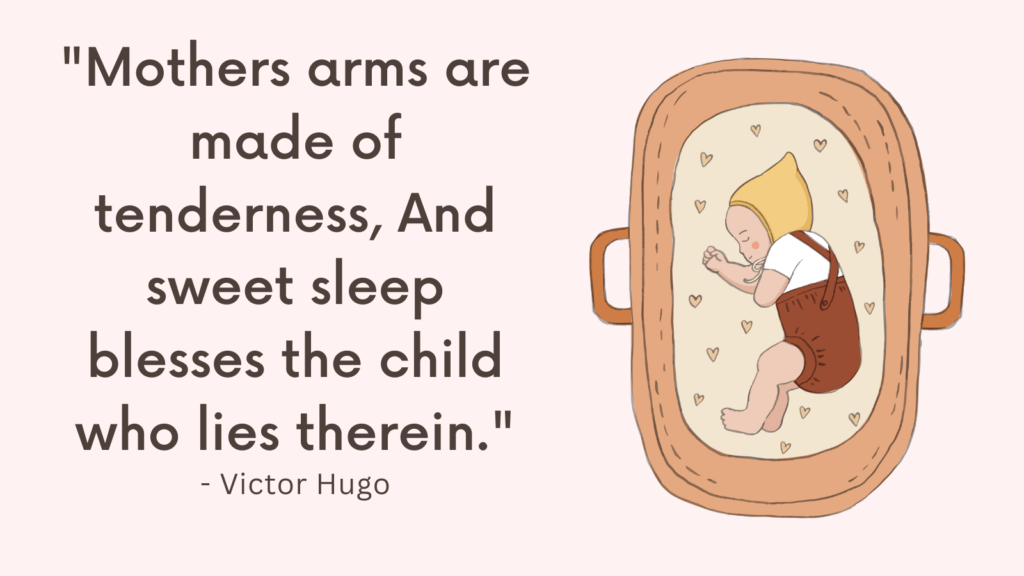In this post, you’ll learn how to deal with baby chewing on his crib.
Is It Normal For Babies To Chew on Their Crib?
Babies may chew on their crib for various reasons, and it can be a normal part of their development. Here are some possible explanations:
1. Teething
Just like babies might rub their face when teething, they may also chew on objects, including their crib, to alleviate the discomfort of emerging teeth.
Providing safe teething toys or chilled teethers can redirect their chewing behavior.
2. Sensory exploration
Babies explore the world around them using their mouths.
Chewing on the crib rails allows them to engage their senses and learn about different textures and tastes.
Ensuring they have other safe and appropriate objects to explore and chew on can help redirect this behavior.
3. Soothing and self-soothing
Chewing on the crib may serve as a self-soothing mechanism for babies, especially when they are feeling stressed, tired, or overwhelmed.
It can provide temporary comfort and help them regulate their emotions.
Establishing consistent bedtime routines and creating a calming sleep environment may assist with reducing stress and promoting better sleep.
Related: When Do Babies Go From 2 Naps To 1
4. Attention-seeking
Some babies may chew on their cribs to gain attention from caregivers.
If they receive a reaction or interaction every time they chew on the crib, they may continue the behavior to seek attention.
It’s important to provide positive attention and reinforcement for desirable behaviors, such as using appropriate teething toys instead of the crib.
It’s worth noting that if the crib chewing becomes excessive, causing damage to the crib or posing a safety hazard, it might be helpful to consult with a pediatrician or a child development specialist for further guidance and support.
Potential Risks And Concerns of Baby Chewing on Crib
While baby chewing on the crib may seem like a harmless behavior, there are some potential risks and concerns to be aware of:
1. Dental damage
Excessive chewing on hard surfaces like the crib rails can potentially cause dental problems.
Prolonged pressure on the teeth can lead to misalignment or even damage to the emerging teeth.
2. Choking hazard
If pieces of the crib railing or paint chip off due to frequent chewing, they can become a choking hazard if ingested by the baby.
3. Splintering or injury
Some cribs may have older or worn-out parts that can splinter or break when bitten frequently, posing a risk of injury to the baby.
4. Reinforcement of inappropriate behaviors
If the baby finds chewing the crib soothing or entertaining, it may become a self-reinforcing behavior, making it harder to redirect their attention away from the crib in the future.
Related: My Baby Ignores Me When I Call His Name – Reasons & What to Do About It
How to Deal with Baby Chewing on Crib?
If you are looking for strategies to address your baby’s crib chewing behavior, here are some suggestions:
1. Provide appropriate alternatives
Offer your baby safe and approved teething toys or teethers that can help soothe their gums.
These alternatives can redirect their chewing behavior away from the crib.
2. Ensure a stimulating environment
Make sure your baby has plenty of other interesting objects and textures to explore and chew on, such as soft toys or textured pacifiers.
This can provide them with different sensory experiences and reduce their focus on the crib.
Related: How To Sleep Train For Naps?
3. Establish consistent routines
Creating predictable and comforting bedtime routines can help your baby feel more secure and minimize any stress or anxiety that may contribute to the crib chewing behavior.
Consistency in their sleep schedule can also help regulate their emotions and decrease the need for self-soothing behaviors.
4. Create a calm sleep environment
Ensure that the baby’s sleep area is peaceful and conducive to restful sleep. Dim the lights, play soothing music or white noise, and keep the room at a comfortable temperature.
A calm atmosphere can help your baby relax and prevent excessive crib chewing.
5. Positive reinforcement
When your baby does not engage in crib chewing behavior, provide positive attention and praise.
This can help reinforce desirable behaviors and create a positive association with not chewing the crib.
6. Discourage crib chewing
If you catch your baby in the act of crib chewing, gently redirect their attention to an appropriate alternative, such as a teething toy.
Avoid using negative reinforcement or punishment, as it may escalate the behavior or create additional stress for your baby.
Related: Best 10 Sleep Training Books
When should I be concerned about my baby chewing on the crib?
If the crib chewing persists excessively, causes injury to the baby, damages the crib, or if you have any other concerns, it is recommended to consult with a pediatrician or child development specialist.
They can assess the situation and provide specific guidance based on your baby’s unique circumstances.
Conclusion
It’s important to monitor the frequency and intensity of crib chewing and take appropriate steps to address it to mitigate these potential risks.
Implementing the strategies mentioned earlier can help redirect the baby’s chewing behavior to more appropriate alternatives and create a safer sleeping environment.




